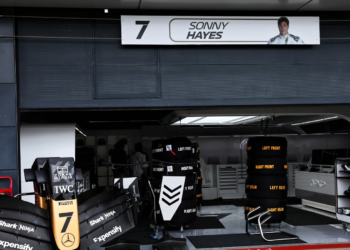Formula 1’s clamp down on “reverse engineering” has been confirmed by the FIA, following the unrest caused by Racing Point’s RP20 this year.
Earlier in 2020, Renault lodged a protest against the car, claiming the front and rear brake ducts were a direct copy of those used by Mercedes’ 2019 title winning W10 challenger.
Racing Point was fined €400,000 and docked 15 points in the Constructors’ Championship after the FIA concluded its investigation, as the brake ducts became listed parts for 2020, meaning they must be designed by the team itself.
The Silverstone-based team continuously asserted they had not made any decision outside of what’s allowed in the regulations, as they reiterated that they were non-listed parts in 2019.
Ferrari, Renault, and Racing Point pushed ahead with their intent to appeal the punishment, while McLaren and Williams flirted with taking further action.
However, all involved parties soon agreed to withdraw their appeals and remained content with the original decision.
Although Racing Point was allowed to retain the brake ducts for the rest of the 2020 season, the FIA vowed to make changes to avoid a similar situation going forward.
At the latest World Motor Sport Council meeting, the FIA ratified the changes, highlighting the change “will prevent the extensive use of reverse engineering of rival designs for the design of a car’s aerodynamic surfaces”.
Racing Point now faces a reprimand after each race for running the car with the brake ducts.
The World Council also gave its final approval for the Concorde Agreement that covers 2021 to 2025, which was signed by the FIA, F1 and all 10 teams last month.









